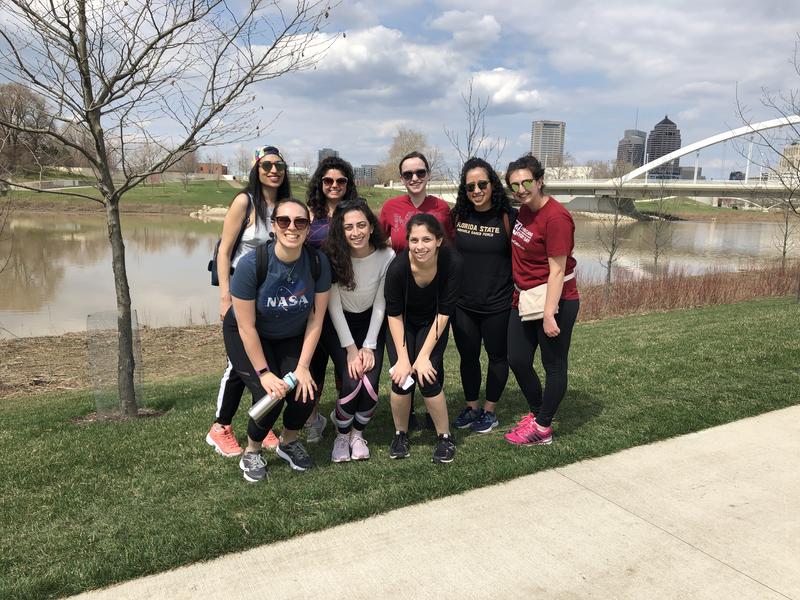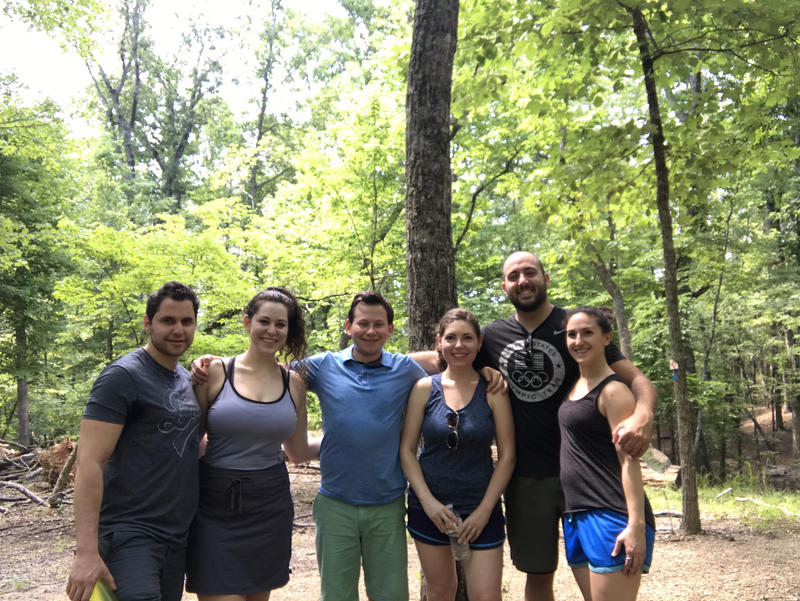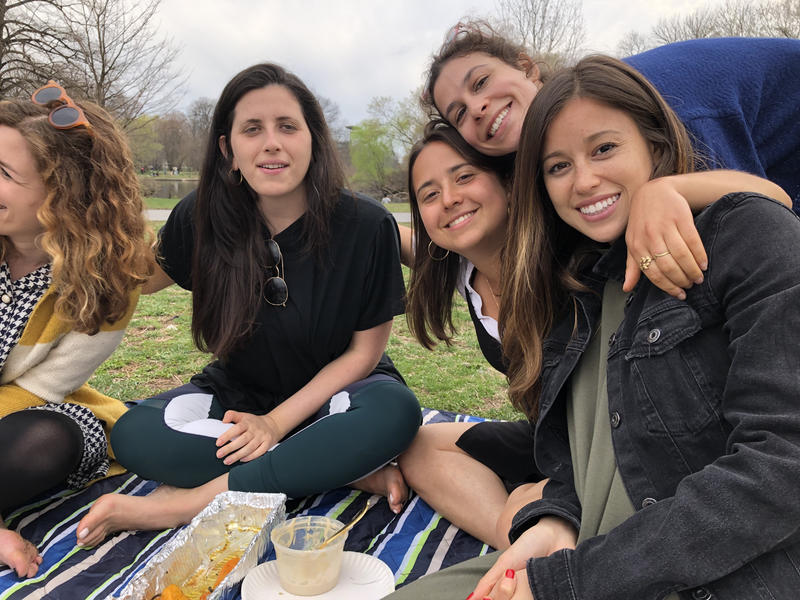
Literally Without Walls: Outdoor Program Resources
“Sustainable development is development that meets the needs of the present without compromising the ability of future generations to meet their own needs.”– Brundtland Commission report to the United Nations on Sustainability (1987), “Our Common Future” My bachelor’s degree is in sustainable development, and although it may seem like this isn’t related to Judaism, MHWOW hosts all over the world are showing us that Jewish community is connected to the environment. Enjoy our outdoor program photos Hall of Fame throughout this article!

Shabbat in the Lawn Shayna Denburg, Brooklyn, NY
Many of us know the importance of protecting the environment for future generations, but did you know that sustainability is also a Jewish value? Traditional prayers proclaim L’dor v’dor, from generation to generation. We are mandated to pass down God’s greatness to future generations, and in order to fulfill that commandment, we should ensure that there are future generations. Are you planning to get your Jewish community outside? Whether it’s a Shabbat picnic, Havdallah hike (there’s a retreat for that!), farm volunteer day, or a terrarium making workshop, sharing Jewish perspectives on the environment can make your MHWOW programs even more meaningful. Here are resources to guide your discussions and concrete ways to make your MHWOW programs more environmentally sustainable.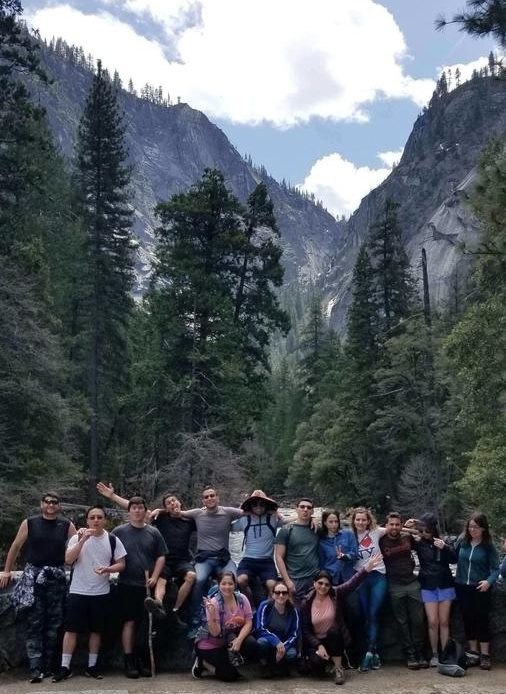
Yosemite Shabbat Dinner Saar Sagir, Sunnyvale, CA
THE WHY
As Jews, do we have an obligation to protect the environment? Based on the following texts, the answer seems to be a resounding… YAS.
YAS.
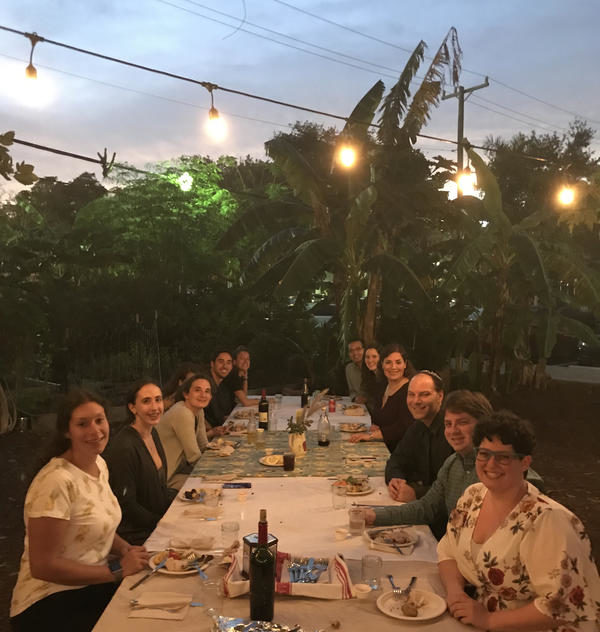
Farm-to-Fork Shabbat Dinner & Oneg in the Garden Amy Krigsman, Boynton Beach, FL
Midrash Ecceliastes Rabbah 7:13 says: “When the Holy One created the human being, He took him and led him around all the trees of the Garden of Eden and said to him: Behold my works, how beautiful they are. All that I have created is within your domain. Take care, therefore, that you do not destroy My world, for if you do, there will be no one else to set it right after you.” L’taken Olam: To Fix the World According to Jill Jacobs, the Executive Director of T’ruah: The Rabbinic Call for Human Rights, a few midrashim have taken the words from B’reishit Rabbah 4:7 “l’taken olam,” which translates as “to fix the world.” They believe that the world is “fixed” when it is in healthy equilibrium.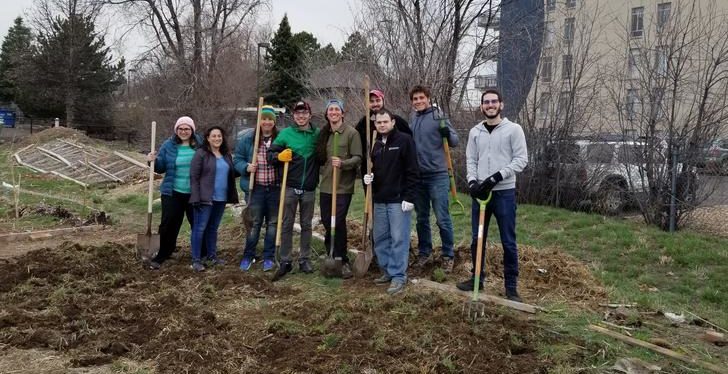
Volunteering at Ekar Farms Max Alpert, Denver, CO
Sustainability & Shabbat My friend and fellow MHWOW host Vlad Plotkin led us on a hike at Morrow Mountain in North Carolina followed by a discussion framed by Rabbi Jonathan Sacks’ commentary on Judaism and the environment. Here’s a snippet:“The Torah is concerned with what we would nowadays call ‘sustainability.’ On the Sabbath all agricultural work is forbidden, ‘so that your ox and your donkey may rest’ (Exodus 23:12). It sets a limit to our intervention in nature. We become conscious that we are creations, not just creators. The earth is not ours but God’s. We may perform no ‘work,’ which is to say, an act that alters the state of something for human purposes. The earth too is entitled to its periodic rest.”
Spiritual Hike Vlad Plotkin, Charlotte, NC
Grounded in Gratitude Another Jewish value is giving thanks for all of our blessings, and the Earth and all its bounty is certainly something to give thanks for. Here is a lovely prayer from Hazon that gives thanks for our land, food, covenant, and a bunch of other stuff.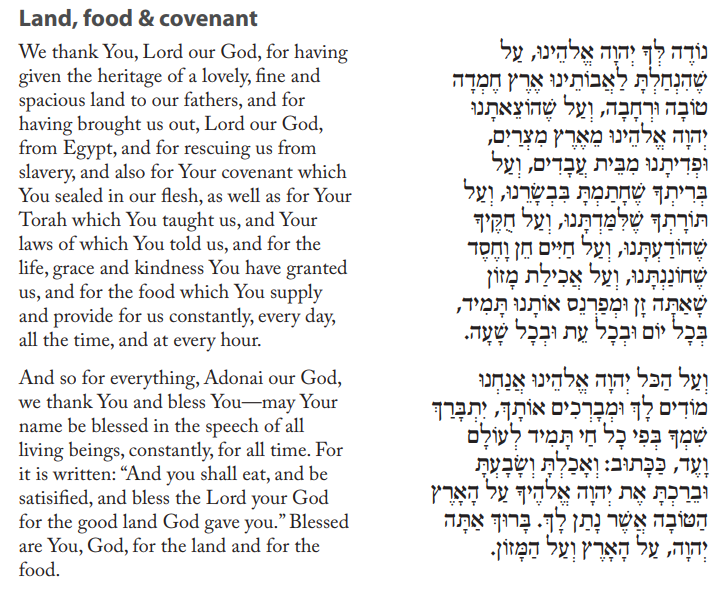 Here’s more on gratitude as a Jewish value and how you can actively exercise gratitude at your MHWOW programs. I originally put this together for Thanksgiving, but gratitude is relevant year-round.
Here’s more on gratitude as a Jewish value and how you can actively exercise gratitude at your MHWOW programs. I originally put this together for Thanksgiving, but gratitude is relevant year-round.
